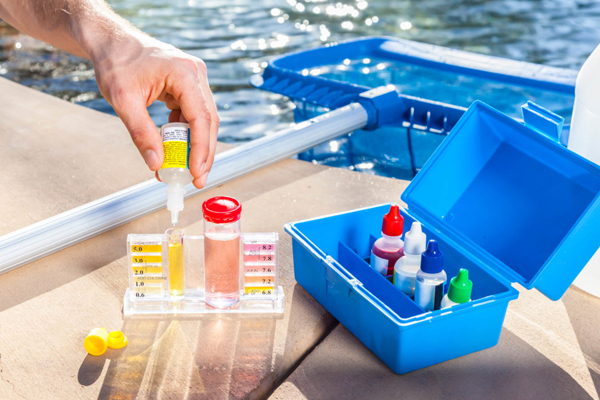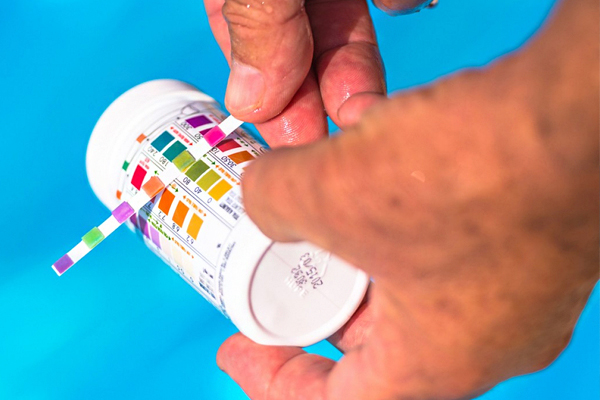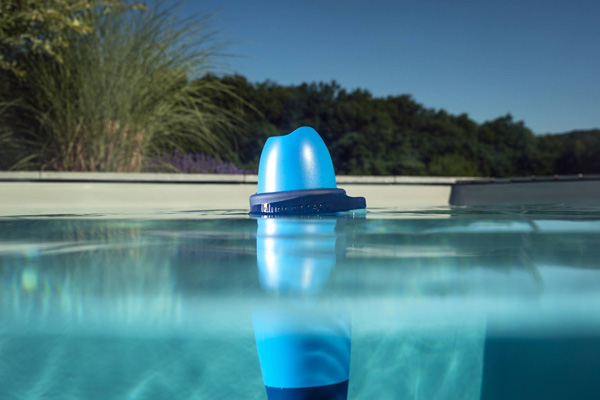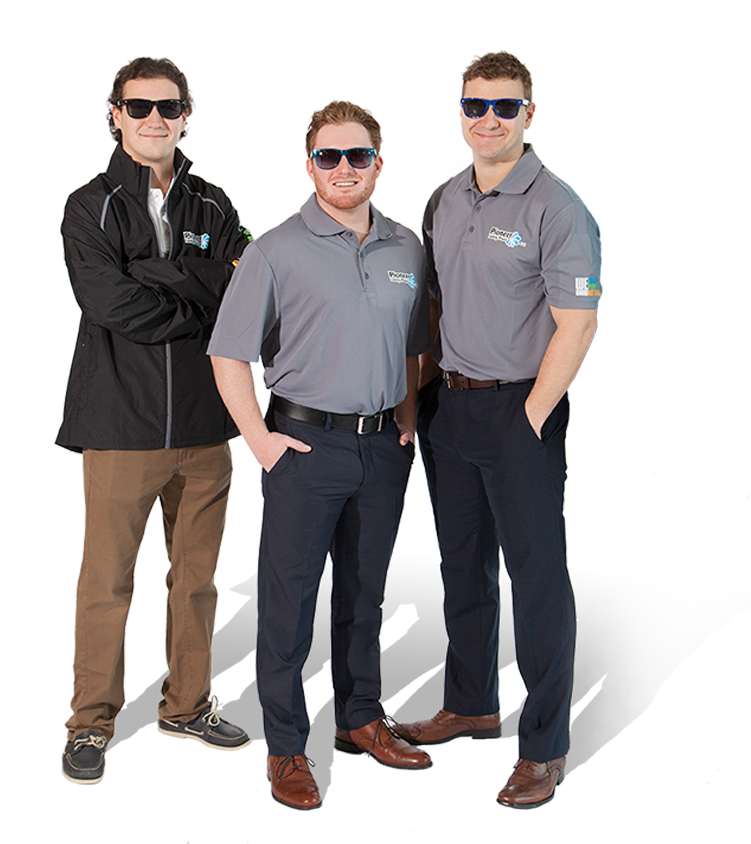How To Test Your Pool Water
How To Guides - Pools
Regular testing of your pool water is an essential part of maintaining the health of your pool and your family. Keeping your water balanced is vital for your pool, your pool’s equipment and its longevity as a whole.
Getting an accurate reading of your water chemistry will help you understand how much of which particular pool chemicals you need to make the necessary adjustments to your water. Regular testing of your pool water prevents the possibility of under-treating and over-treating your water.
Pro Tip: Over-treating your water can cost you money! Be sure to test your water regularly and only use the chemicals that your pool actually needs. This blog will explain the basics of water testing. We want to help our customers become more confident with their water testing and enjoy their healthy, and balanced, pool water this summer.
Pool Water Liquid Test Kits Vs. Pool Water Test Strips: The Truth
Testing your pool water is fairly simple, if you have the right tools and know what to do with them. If you are testing at home, we recommend using a liquid test kit or test strips. Below we have outlined the benefits of using each type of test, and as well as certain things to watch out for with each one.
Liquid Test Kits
Benefits
✓Most accurate type of test; especially for testing chlorine
✓Allows you to test and examine more diverse water chemistry
✓The most recommended type of at home test
Pay Attention
✓Testing can take longer
✓Dropper bottles need to be held up properly with the drops counted carefully as they drop out
✓Do not touch the tip of the dropper bottles as it can throw off your tests and contaminate your droplets
✓Do not interchange the caps of the dropper bottles
Test Strips
Benefits
✓Quickest way to test your pool water
✓Simple to use and read
✓Cheapest testing option
✓Easy for daily use
Pay Attention
✓A less comprehensive test overall
✓Not as accurate as a liquid test kits, so please use strips more often
✓Some results take just a few seconds to develop, and some take longer; for tests with multiple results on the same strip, it’s important to understand the timing so you can wait for all of the results
✓Hands must be completely dry when removing the strip from the container
Tips & Tricks For Pool Water Testing!
We recommend that you always keep your essential pool chemicals on hand. This way, if you need to quickly treat your water, you won’t have to be running to the store or ordering products.
Please keep a primary sanitizer on hand (chlorine, salt, bromine) to kill viruses and bacteria in your water. In addition, keeping a weekly shock on hand will ensure that your sanitizer is working to its maximum potential. We also recommend that you keep water balancers to manage your water’s pH, total alkalinity and calcium hardness. Furthermore, we recommend that you keep an algaecide, neutralizer and clarifier as well!
Helpful Tips To Get The Most Accurate Pool Water Test Results!
✓Closely follow the instructions that come with your liquid test kits and strips.
✓Most water tests include measurements for Free and Total Available Chlorine, pH, Total Alkalinity, Calcium Hardness, and Cyanuric Acid. If your pool has a salt system, the salt level should also be checked.
✓When using a test kit please take your water sample from 12 to 18 inches below the surface after the circulation system has been on for an hour. A good rule of thumb is to take your water sample from about elbow deep in the pool water; away from the return fittings.
✓For test strips, dip the strip per the label directions.
✓Ideal testing ranges are as follows: Chlorine: 2.0-4.0 ppm, pH: 7.4-7.6, Total Alkalinity: 80-120 ppm, Calcium Hardness: 200-400 ppm, Cyanuric Acid: 30-50 ppm.
✓High chlorine levels can interfere with other readings, such as pH and Total Alkalinity. If high levels of chlorine are present, a chlorine neutralizer should be added to the pool water.
✓It can take a moment for some testing reactions to occur. Familiarize yourself with the instructions before using any type of water test.
✓Store all test materials in a cool, dark area (like a shed or garage), and check them for accuracy on a yearly basis. Expired testing materials can cause inaccurate readings!
✓Water tests should always be completed before adding any chemicals.
✓The amount of chemical to add is found on the individual label based on what size your pool is and what your level is. For salt, almost all of the manufactures have a chart in their manual on how much salt to add for their system, based on what your level is.
✓When adding salt, salt should be added slowly over time. For example, if your system requires 4 bags, start with two and add more gradually. This is to prevent false salt readings and over salting your pool.
✓After adding your chemicals, it’s important to let the water circulate completely before testing your water again. This process usually takes about 12 to 24 hours for most pools, but is the timing is dependent on the pump size, run time, and pool size.
Blue Is Best!
Another helpful tool that we recommend to all of our pool owners is the Blueriiot Smart Water Analyzer.
Blueriiot, the smart pool analyzer, is a device that combines a water quality sensor and smart algorithms that mix water data, weather data and user data. Blueriiot, and its smartphone app, helps you look after your pool 24/7, even if you aren’t near your pool.
Thanks to Blueriiot, there is no more uncertainty about what is happening with your pool while you are in it or away. Blueriiot gives users access to Virtual Pool Care, a powerful web platform that allows your local pool professional to monitor your pool remotely, providing the ultimate peace of mind.
Learn more about Blueriiot by clicking here.
Guidelines & Help Sheets For Troubleshooting!
Below please find some helpful buttons that will connect you to our info sheets that will give you step by step guidelines for troubleshooting:
| Ideal Chemical Ranges | New Pool Chemicals |
| General Pool Maintenance | Algae Treatment |
| Phosphate Help | Pool Opening Instructions |
| Pool Water Maintenance | Superchlorinating Your Pool |
Should you have any further questions or require assistance, please do not hesitate to contact us! We are here for you and are always available to coach you and provide you with the proper tools and knowledge to properly, and efficiently, test your pool water.




